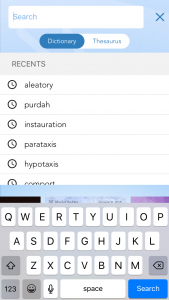The Beauty of the Infinite by David Bentley Hart
What the Book Is About
The Beauty of the Infinite is a treatise on the aesthetics of Christian theology, a defense, as it were, of Christianity’s “rhetoric of peace” over against the rhetorical violence of modernity and postmodernity. The main idea of David Bentley Hart’s masterpiece (and it is, in my opinion, a masterpiece) could be stated like this:
The rhetoric of God is Jesus Christ, offered as pure gift. As gift, Christ is infinite peace. As both gift and the rhetoric of peace, Christ is beauty, the magnificent demonstration of the self-giving love of the Trinity which crosses all boundaries, even the boundary of death.
The Triune God is “the God who ‘others’ himself within himself and contains and surrenders otherness as infinite music, infinite discourse.”
The premise that Christianity possesses, in Christ, a rhetoric of peace, is a challenge to the Nietzschean notion that all rhetoric is violence, that all speech is a strategy of power and domination. In addition to Nietzsche, Hart critiques trend-setting philosophers such as Heidegger, Foucault, Derrida, and Hegel. Admittedly, this is not the stream in which I normally swim, and I found myself an observer of a one-sided conversation which I hardly grasped. But the theology of The Beauty of the Infinite is where the book truly excels. Take, for example, this soaring bridge between parts one (the philosophical critique) and two (the theological treatise) of the book (you may want to have a dictionary handy – I made thorough use of mine!):

This is a small portion of the words I had to look up while reading David Bentley Hart’s The Beauty of the Infinite.
In other words, the God whose love has crossed all boundaries – even the final boundary of death, the greatest weapon of the empire – has done so in order to proclaim peace to all. God’s great Word – his son Jesus – is the final word of peace, spoken to a world whose Word is violence, particularly the violence of the cross. God speaks this Word of peace because he is, in himself as Trinity, infinite peace and infinite love. The bond of the Trinity is the bond of love, the self-sacrificing (agape) love that also desires (eros) the other. This Triune God is the God who speaks, who has spoken in Christ, “the God who ‘others’ himself within himself and contains and surrenders otherness as infinite music, infinite discourse.” (181)
The God whose love has crossed all boundaries – even the final boundary of death, the greatest weapon of the empire – has done so in order to proclaim peace to all.
I have only scratched the surface (and a very light scratch at that) of The Beauty of the Infinite. There is far more to this work than I can possibly comment upon in this so-called review (as though an amateur could possibly hope to review the work of an experienced tradesman), but I can say with certainty that this is a resource from which I will draw again and again over the years.
What I Learned
The primary lesson of The Beauty of the Infinite, for me, was one that I observed indirectly, and that is the importance of the Trinity for all theology. Interestingly enough, I was reading through the section on the Trinity at the same time the professor at Wheaton got into all that trouble for saying that Christians and Muslims worship the same God. Hart demonstrates, perhaps indirectly, that the doctrine of the Trinity is more than a mere doctrine or statement about God; it is God’s essence, supremely vital to all theological reflection and faithful practice of the Christian faith. In order to understand God, and therefore to love him well, the Christian must begin with the Trinity. As I have written elsewhere, the Trinity is not something about God; God is Trinity.
There is a great deal more that could go into this section, which is obvious if you have read the review thus far. Hart covers so much ground that is new to me, but also goes over familiar territory in new and exciting ways. There is much more that he could say about a number of things, and I did wish that he had spent more space going over the inherent violence that postmodern, liberal tolerance inflicts upon metanarratives, but the book had already surpassed the 400 page mark. Regardless, The Beauty of the Infinite is a resource to which I will no doubt turn again and again in my ministry.
My Recommendation
This is, without a doubt, the most intellectually challenging book I have ever read. I wished, many times over, that I had been at least conversant with modern and postmodern philosophical trends, if not an expert in the field. Hart assumes the reader is familiar with the writings of Nietzsche, Heidegger, Foucault, and others – not to mention ancient sources. He even, at times, reproduces quotes in their original language, whether Greek, Latin, German, or French. My experience reading The Beauty of the Infinite was a repeated cycle of saying, “I don’t get it. I don’t get it. I don’t get it. WOAH! That’s powerful!” The parts that I did grasp, however, were well worth the vast pages and paragraphs wandering in the wilderness of ignorance. If you choose to read this book, persevere through it. You will not regret it.

